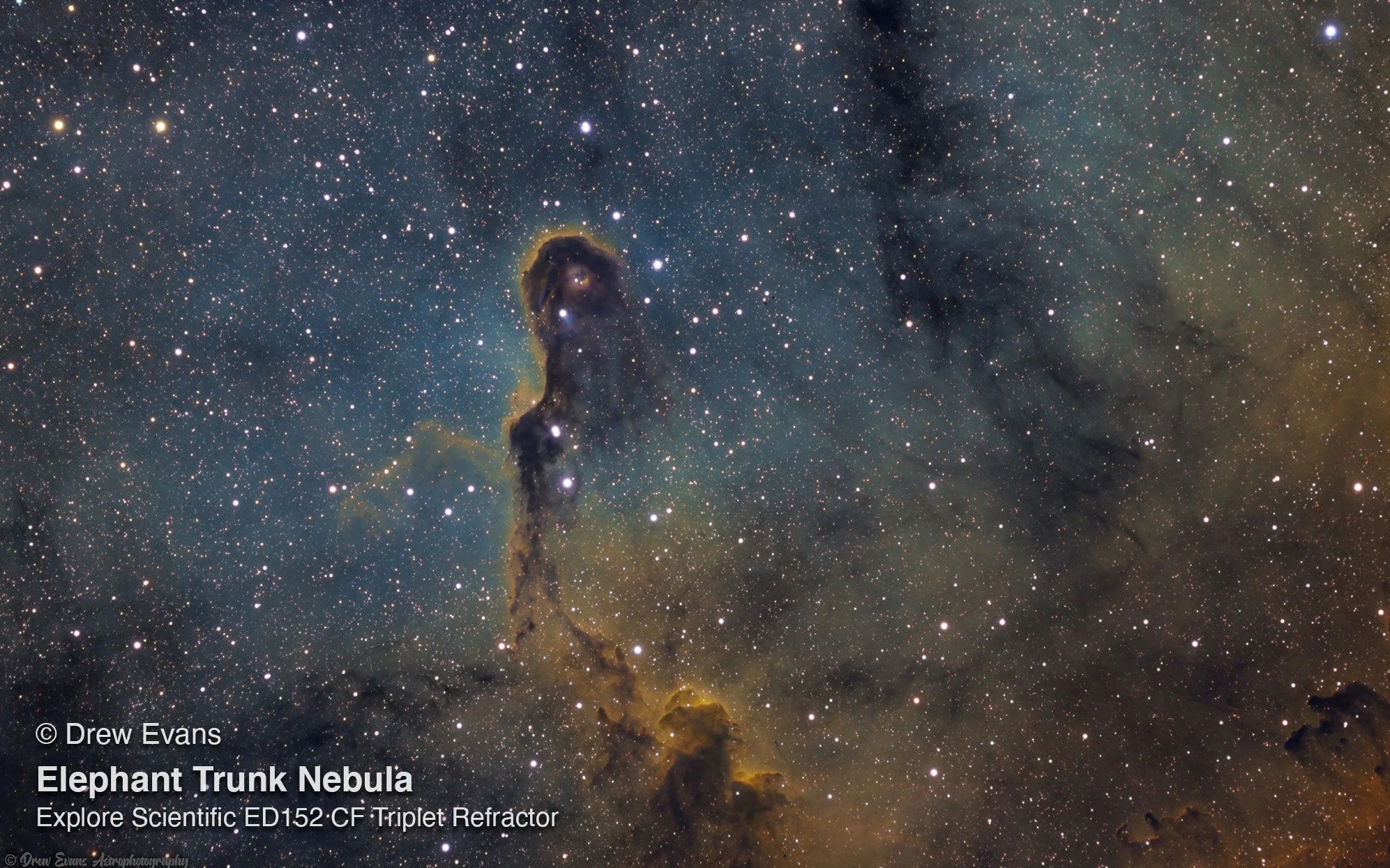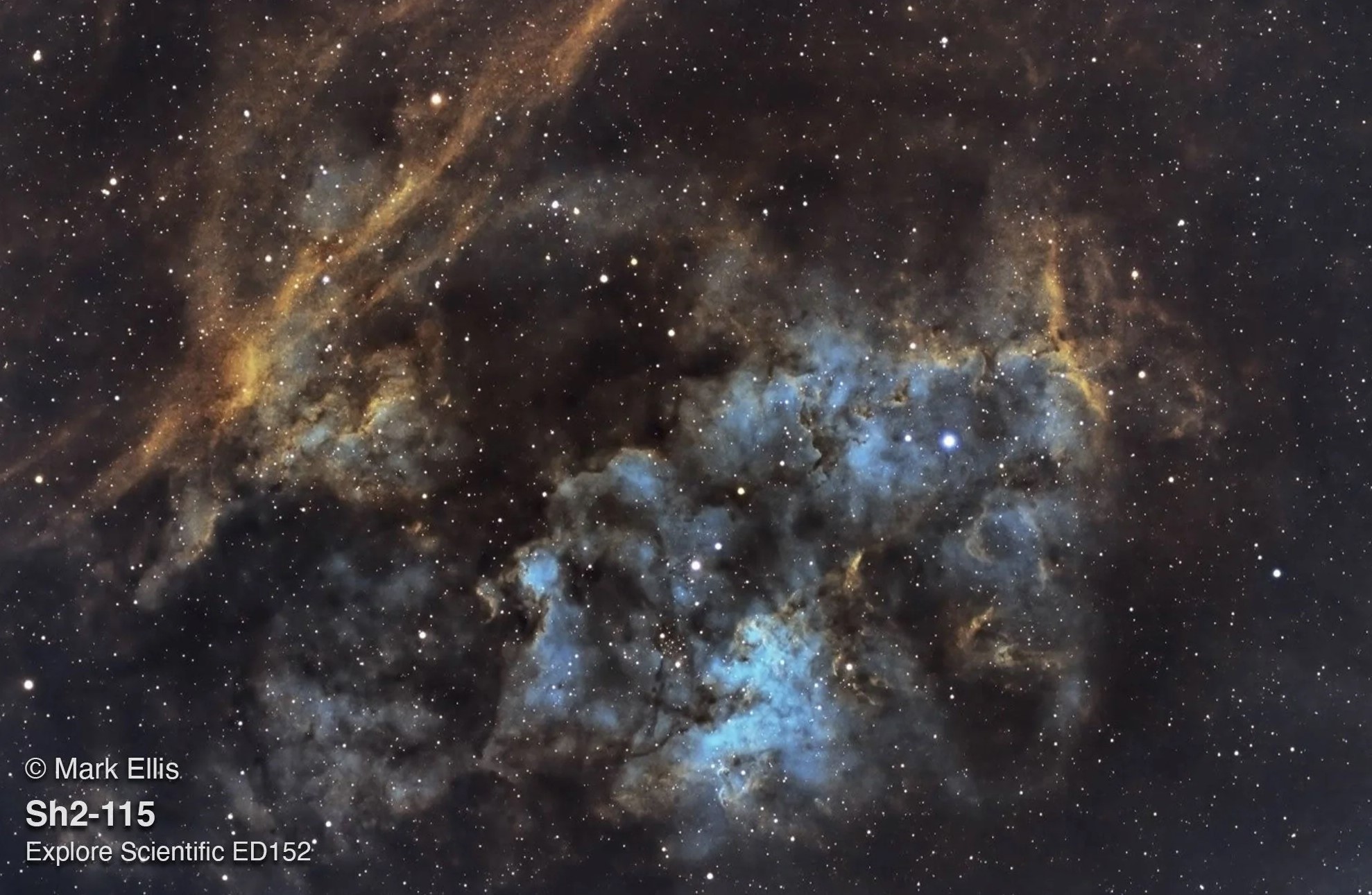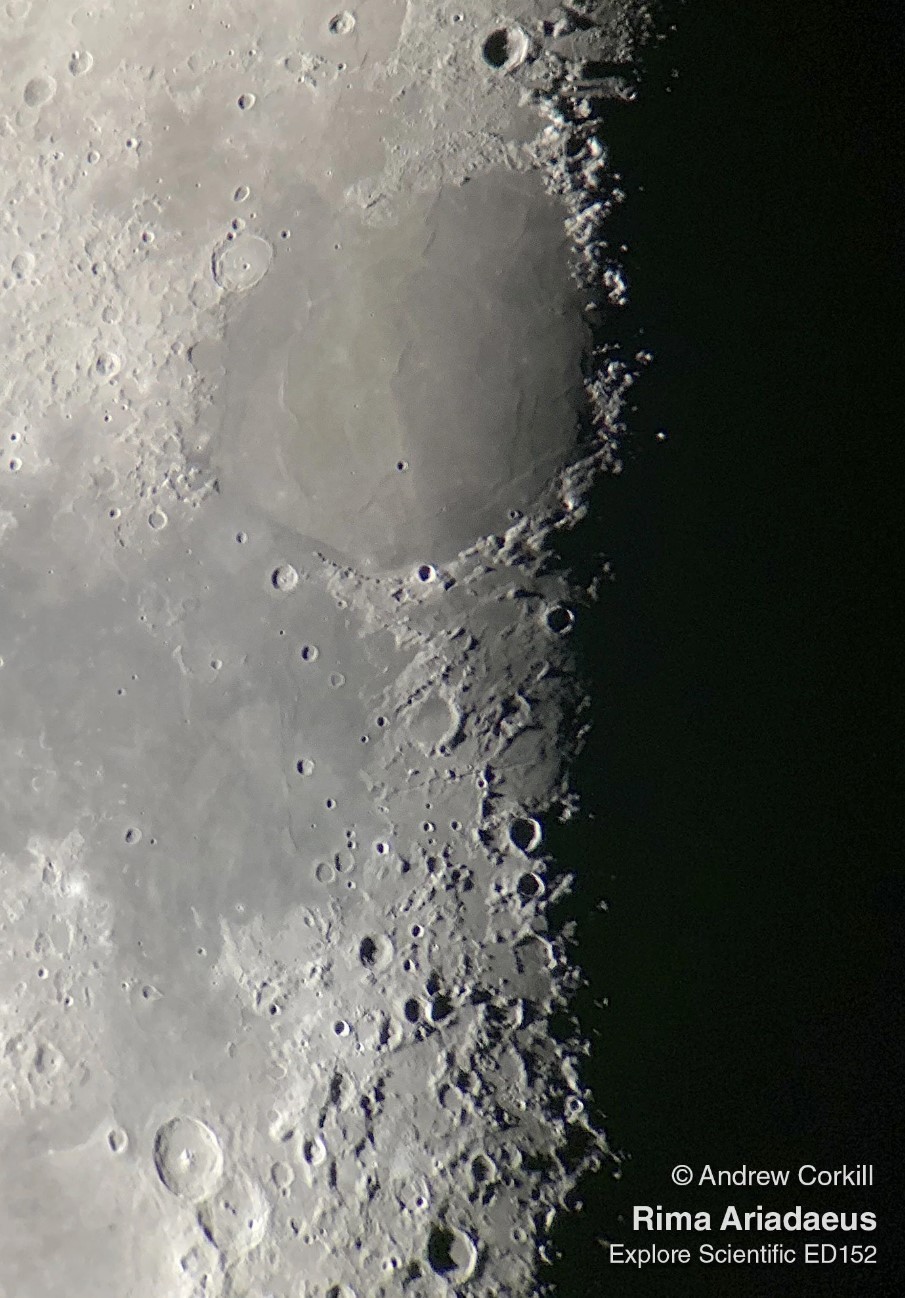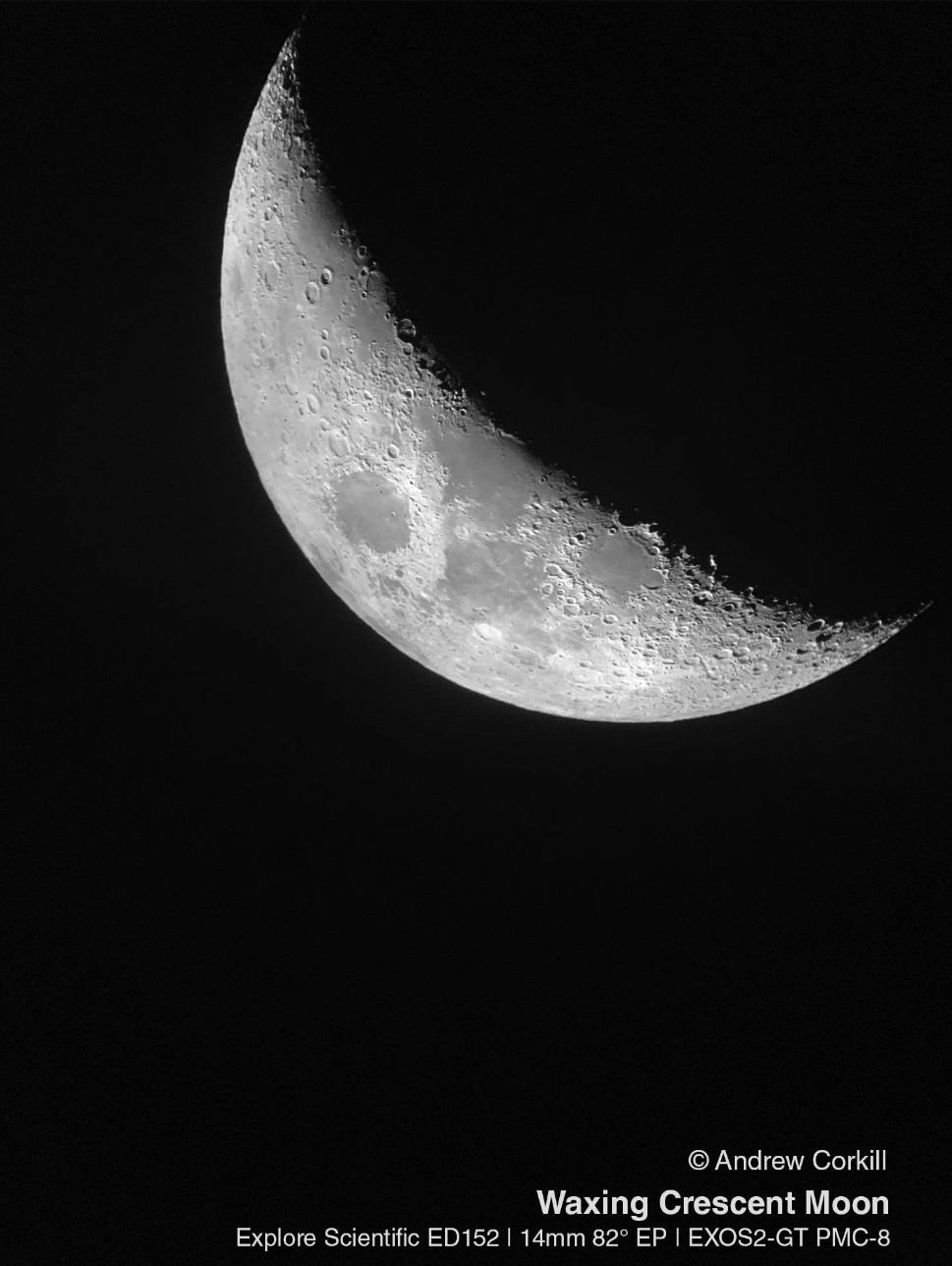Explore Scientific, TED15208CF-HEX33, ED152 Air-Spaced Triplet Telescope in Carbon Fiber
Serious amateur astronomers who choose apochromatic refractors know that generally once you start using an instrument larger than 127mm, that the limitation of size and weight can become a problem, often requiring a larger-class equatorial mount that is expensive and heavy. For some, large and heavy telescopes and mounts are out of the question due to physical constraints. With the Explore Scientific ED152 at only 20.5 lbs, many mid-priced, lighter, and more portable equatorial mounts (such as the precision Losmandy G11 PMC-Eight) are perfectly matched with this optical tube assembly for high quality astrophotography and serious visual use.
With its 44% increase in light grasp and image brightness compared to the ED127 Air-Spaced Triplet, and 125% increase compared to the ED102 Air-Spaced Triplet, the ED152 Air-Spaced Triplet FCD1 Series in Carbon Fiber is a research-class instrument, ready for high-productivity assignments.
Observe moon transits with their shadows across the face of Jupiter, as well as structural detail and color variations within the wake of the Great Red Spot and at the boundaries of numerous equatorial cloud belts; resolve Cassini's and Enke's Divisions of Saturn's rings and substructures within the rings themselves. Nebulae and galaxies objects appear like they are etched in crystal" some describe it as "three-dimensional" against a very dark sky because of the telescope's unobstructed, high contrast optical system.
Nebulae stand out in splendid detail, giving one the impression they are looking through a much larger aperture telescope, with filamentary structures observable even under less than optimal seeing conditions. A wide range of accessories is available to suit virtually any observing requirement.
For the school or university observatory, or to add to the collection of instruments for the dedicated amateur astronomer, the ED152 Air-Spaced Triplet FCD1 Series in Carbon Fiber is a true work-horse optical instrument ready for any observing or imaging requirement.
Astrophotography with the ED152
Perhaps the only way to show how a telescope performs as an astrograph is to show images made by it. Here is a collection:




Standard Equipment: 152mm aperture Air-Spaced Triplet Optics with HOYA FCD1 ED Glass and EMD Coatings; Carbon Fiber Tube Assembly and Removeable Dew Shield; Two-Speed 2.5-inch Hexagonal Focuser; Cradle Ring with Handle and Losmandy-Style Dovetail Plate; Hybrid 2N1 finder base, 99% Reflective 2-inch Diagonal
For more information, please see  User Manual
User Manual